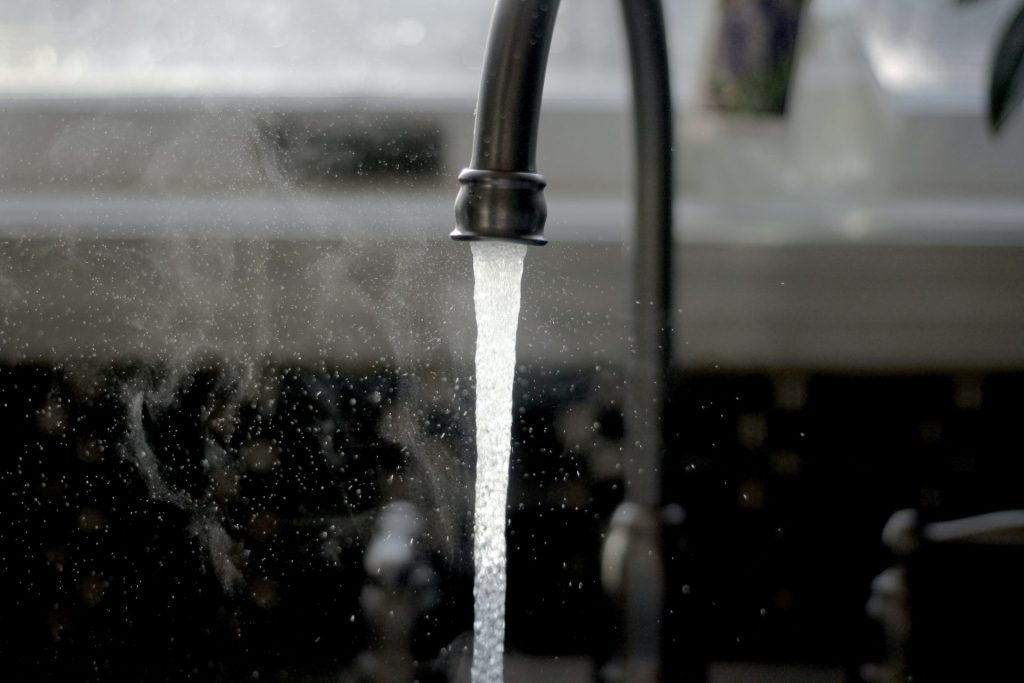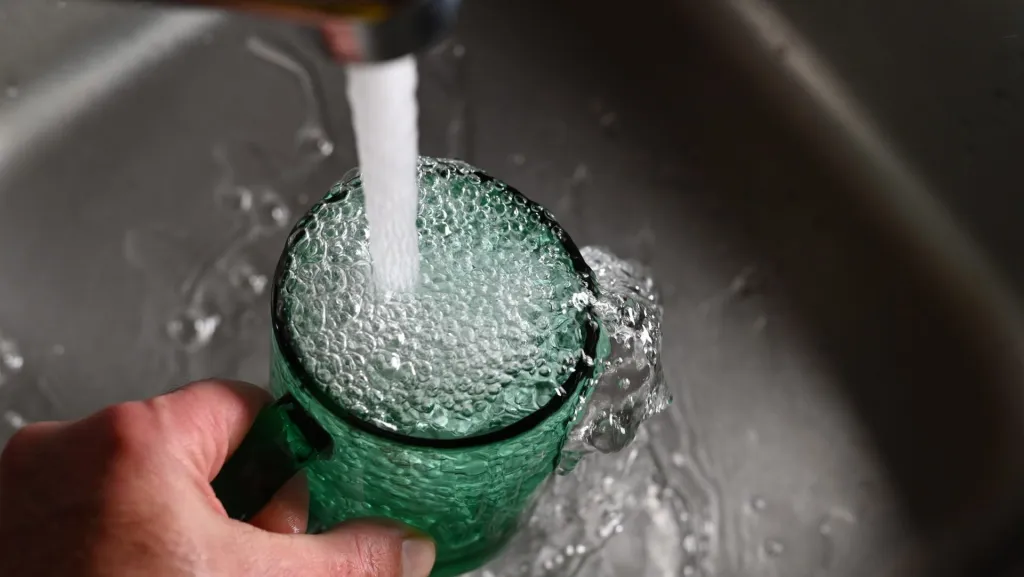I don’t recommend drinking the tap water in Buenos Aires. The taste and smell that is often attributed to the mineral content of the water in Buenos Aires actually has nothing to do with minerals. It’s the chlorine, chloramine and other chemicals used by AySA to process the tap water for the city.
Tap Water In Buenos Aires Argentina
Where Does The Tap Water In Buenos Aires Come From?
Argentine Water and Sanitation S.A (AySA) is the state owned company that is responsible for running water and sewer services in Buenos Aires and much of Argentina. AySA gets the tap water it supplies Buenos Aires from the Río de la Plata.
AySA gets the water it supplies the city direct from the Río de la Plata and treats it with chlorine, chloramine and other chemicals you can read about here. The system used by AySA to treat the water was designed by the British. And it’s generally considered world class.
Is The Río De La Plata (Where AySA Gets Its Water) Polluted?
Yes the Río de la Plata is polluted. Argentina has had multiple projects and loans with the World Bank to deal with the pollution of the Río de la Plata.
There is consistent monitoring of the water quality, in and around the AySA water pumping stations, according to the AySA website. And the particular stretch of the Río de la Plata where the tap water is coming from, is generally considered to be safe.

Strong Chemical Smell From The Tap Water In Buenos Aires
The chemical smell emanating from tap water in Buenos Aires is chlorine. Tap water in Buenos Aires smells and tastes like a chlorinated swimming pool. The smell and taste of the water in Buenos Aires has nothing to do with minerals.
From the onset of the COVID-19 pandemic AySA have been adding additional chlorine to the water system in Buenos Aires. AySA have been adding the additional chemicals as a protective measure. And you can read about it on their website.
Though the tap water in Buenos Aires may smell strongly of chlorine, it is considered drinkable. Yet, I don’t personally drink the tap water in Buenos Aires. But I do drink the tap water in Bogotá Colombia, unlike Cuba’s toxic tap water which I won’t consider drinking unless it’s filtered.
Both major South American cities are using similar systems and chemicals to clean the tap water. But Bogotá doesn’t overdo it with the chemicals like AySA in Buenos Aires.
Why I Don’t Drink The Tap Water In Buenos Aires
Do you remember that age old adage that states, ‘don’t s**t where you eat’? Well, in Buenos Aires it should be amended to ‘don’t get your drinking water from where they dump the sewage’.
The Río de la Plata cannot be both so polluted, that it needs millions in World Bank loans to reduce pollution and at the same time, so clean its drinkable. It’s either clean and drinkable or polluted. It can’t be both.
Another problem you’ll encounter in Buenos Aires, is the use of lead based pipes. And lead based solder on pipes in older residential buildings. New buildings are lead free. But the older buildings can’t be guaranteed to be free of lead. Or asbestos for that matter.
If you do manage to overlook the fact that your drinking water is coming from a river so polluted it need millions in loans and travels to you through pipes that could contain lead and other less desirable materials, you then need to get past the taste and smell of the water itself.
The treatment used to clean the water is world class. AySA is doing a great job of cleaning the water in Buenos Aires. But it smells and tastes like a chlorinated swimming pool. For me personally, the smell and taste is the real deal breaker. I can’t drink water that tastes so strongly of chlorine.
What I Do For Water In Buenos Aires Argentina
I have no problem using the local tap water in ice cubes. Or sometimes boiling it for tea or coffee. But drinking the water straight from the faucet is something that I just won’t do. The funky chemical smell and taste, is just too much for me.
In Buenos Aires, you can buy bottled water from the supermarket. And you can get 5 liter bottles of drinking water from as low as 50c. I just buy bottled water every few days and use that for drinking and boiling. If I ever cooked while in Buenos Aires, I’d use the bottled water for that too.
I find bottled water so cheap and plentiful, that it makes no sense to try and stomach the awful chemical smelling tap water in Buenos Aires. And unless you’re the world’s most broke backpacker, you should just buy bottled water.

Could You Drink The Tap Water If You Were Desperate?
For washing, showers and doing laundry the tap water is perfectly fine. For drinking straight out of the tap it’s definitely less than ideal. But, if you were in a pinch, you could drink the tap water in Buenos Aires.
I’ve found that if I fill a glass with water and let it sit for up to an hour the chlorine smell dissipates. And once the smell is gone, it doesn’t taste too bad. But I wouldn’t willingly choose to drink the tap water in Buenos Aires for any sustained length of time.
Where Can I Get More Information About Buenos Aires?
If you’re planning to visit Buenos Aires on your next vacation, or you’re simply interested in Argentina in general, you should read my Buenos Aires City Guide.
My Complete Buenos Aires City Guide is updated regularly. And it seeks to answer all of your questions regarding Buenos Aires and Argentina in one place. Read my Complete Buenos Aires City Guide.




